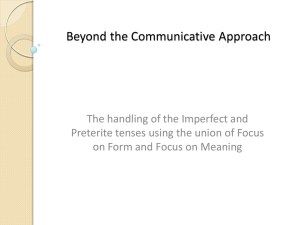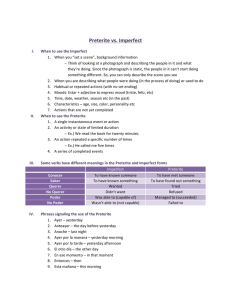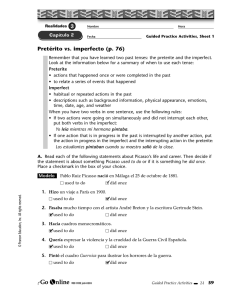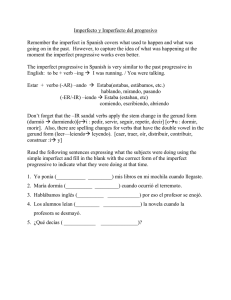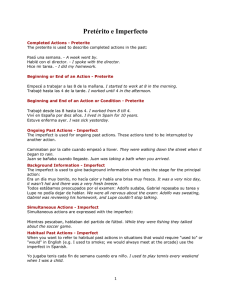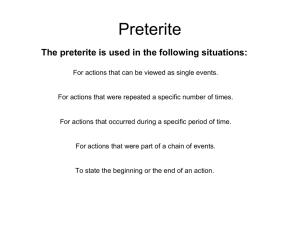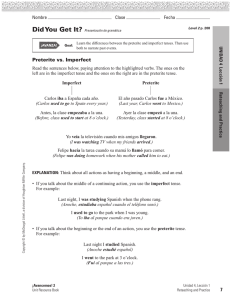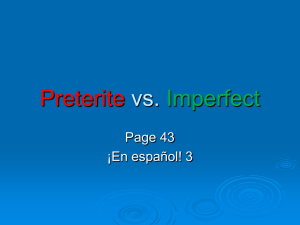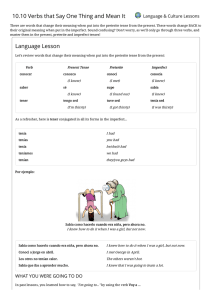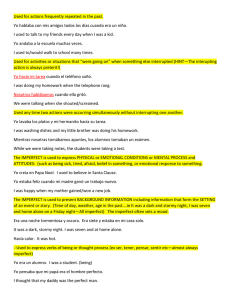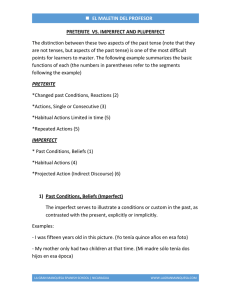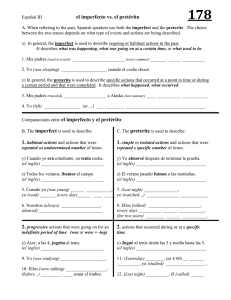Translation problems: imperfect or preterite? Although the English
Anuncio
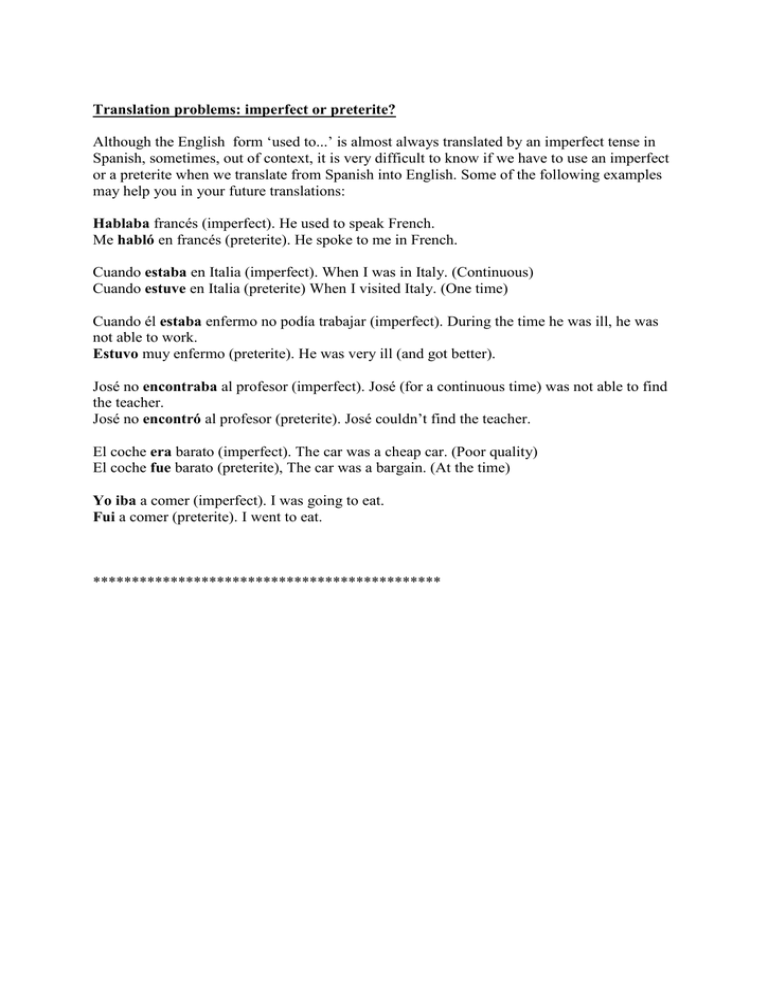
Translation problems: imperfect or preterite? Although the English form ‘used to...’ is almost always translated by an imperfect tense in Spanish, sometimes, out of context, it is very difficult to know if we have to use an imperfect or a preterite when we translate from Spanish into English. Some of the following examples may help you in your future translations: Hablaba francés (imperfect). He used to speak French. Me habló en francés (preterite). He spoke to me in French. Cuando estaba en Italia (imperfect). When I was in Italy. (Continuous) Cuando estuve en Italia (preterite) When I visited Italy. (One time) Cuando él estaba enfermo no podía trabajar (imperfect). During the time he was ill, he was not able to work. Estuvo muy enfermo (preterite). He was very ill (and got better). José no encontraba al profesor (imperfect). José (for a continuous time) was not able to find the teacher. José no encontró al profesor (preterite). José couldn’t find the teacher. El coche era barato (imperfect). The car was a cheap car. (Poor quality) El coche fue barato (preterite), The car was a bargain. (At the time) Yo iba a comer (imperfect). I was going to eat. Fui a comer (preterite). I went to eat. *********************************************
